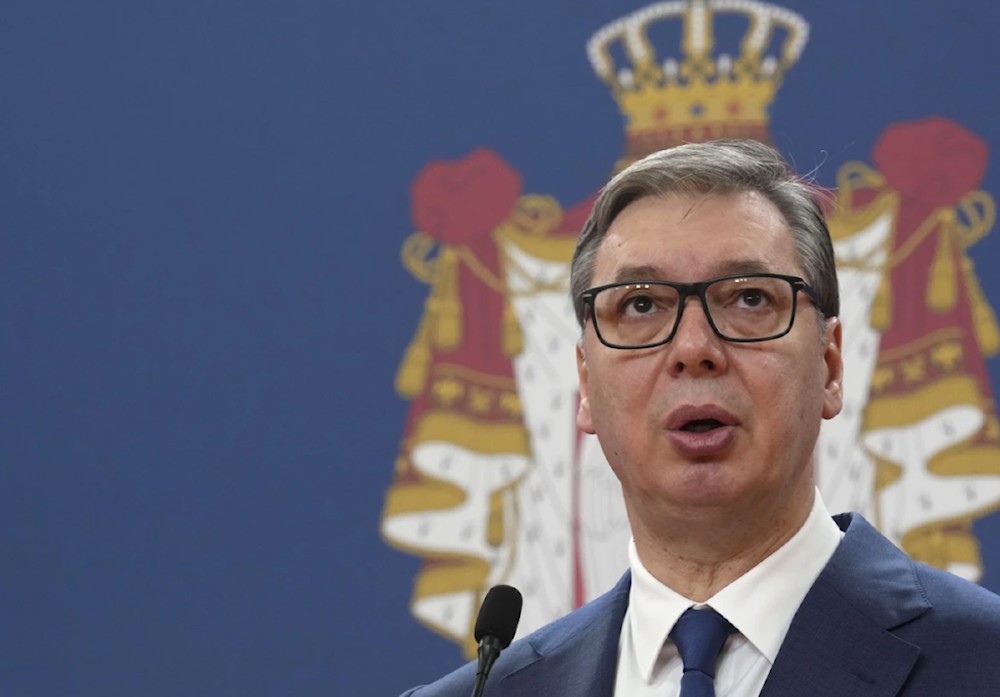Serbian leader warns of foreign-backed ‘color revolution’
The president said a coalition of Western, Croatian, and Albanian interests is attempting to destabilize Serbia internally.
-

Serbian President Aleksandar Vucic speaks during a news conference with Slovakia's PM Robert Fico in the Serbia Palace in Belgrade, Serbia, on November 21, 2024. (AP)
Serbian President Aleksandar Vucic has accused the opposition of working with foreign intelligence services to destabilize the nation amid continued student-led protests sparked by the catastrophic collapse of a canopy at the Novi Sad train station last November.
The event, which took 15 lives, sparked public indignation and resulted in the resignation of Infrastructure Minister Goran Vesic.
"This is all an attempt at a color revolution," Vucic remarked in a live interview for Happy TV on Saturday.
He alleged that foreign agents encouraged students to disrupt important transit routes. The president said the actions are organized by "foreign instructors" working in the region and accused the opposition of being “a tool in the hands of criminal and foreign intelligence services. These young people are more or less being used by them."
Protests organized by students and opposition organizations began in November and have extended to places like Novi Sad and Belgrade.
Protesters assemble every Friday at 11:52 am, the time of the fatal train station collapse on November 1, and stand in silence for fifteen minutes, regardless of location. The protests frequently obstruct traffic. Student strikes have forced the closure of around 50 institutions and schools.
The president further said that a coalition of Western, Croatian, and Albanian interests is attempting to destabilize Serbia internally. "They aim to destroy Serbia from within, to prevent us from being a significant international factor, and to incite internal conflict," he stated.
Vucic underlined Serbia's rising strength in comparison to its neighbors, citing it was "militarily at 55-58% of Croatia's strength, but today, for the first time in 25 years, Serbia is stronger. Now they see the opposite, and their reaction is to target me and Serbia's progress."
The protests began over lithium mining projects and eventually evolved into marches against Serbia's stance on the Ukraine war.
Despite the upheaval, Vucic voiced faith in Serbia's resiliency, saying that even if something were to happen to him, the plans will fail because "Serbs have learned to recognize these tactics," discounting the opposition's prospects of success. "I will never accept the destruction of Serbia - not even if they put a gun to my head."
Serbia maintains complex relations with the West, particularly NATO, shaped by a combination of historical grievances, geopolitical dynamics, and strategic pragmatism. The NATO intervention during the Kosovo War left a deep scar on Serbia's collective memory.
NATO forces conducted a 78-day bombing campaign against the Federal Republic of Yugoslavia (comprising Serbia and Montenegro) without the UN Security Council's approval. This action caused civilian casualties and widespread destruction, fostering long-standing resentment among many Serbians.

 3 Min Read
3 Min Read








